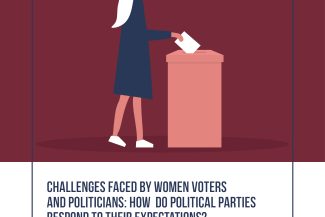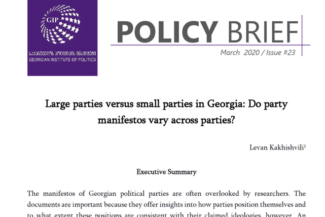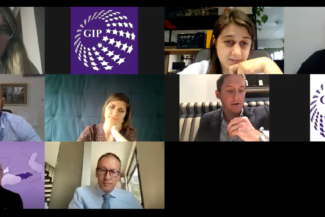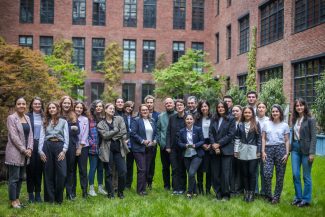The experience of splinter parties discussed in the memorandum shows that in order to achieve electoral success, splinter parties should form their independent party identity and synchronise it with their main political objectives. If the goal of forming Giorgi Gakharia’s splinter party is to remove other large opposition parties from the political arena and establish itself as an alternative force, in accordance with Bidzina Ivanishvili’s plan, the current political climate does not favour this. A combination of factors such as, political legacy, the party leader’s image, and policy positions of mainstream political parties, make it less likely to have a revolutionary breakthrough in traditional choices of Georgian opposition voters and have them align with “For Georgia”. If, “For Georgia” intends to position itself as a capable opposition power, it should distance itself from the Georgian Dream by addressing the most problematic issues at hand. While the number of splinter parties in the country is too small to argue fiercely about explanatory factors leading to electoral success based on their experience, the coming election may demonstrate which other factors impact upon the success or failure of splinter parties like “For Georgia”.
Author

Teona Zurabashvili is a junior Policy Analyst at GIP. As a Swedish Institute scholar, she studied Master’s program in Political Science at Gothenburg University from 2018 to 2020. Besides, she has earned MA degree in International Relations from Georgian Institute of Public Affairs and BA degree in History from Tbilisi State University. In 2019, she was a research associate at Quality of Government Institute (Sweden), where she worked on corruption and gender issues. Her main research interests include democracy, good governance, corruption, and political parties in transitional democracies.
View all posts
09/07/2021
Teona Zurabashvili
Party Identity as the Basis for Splinter Party Electoral Success
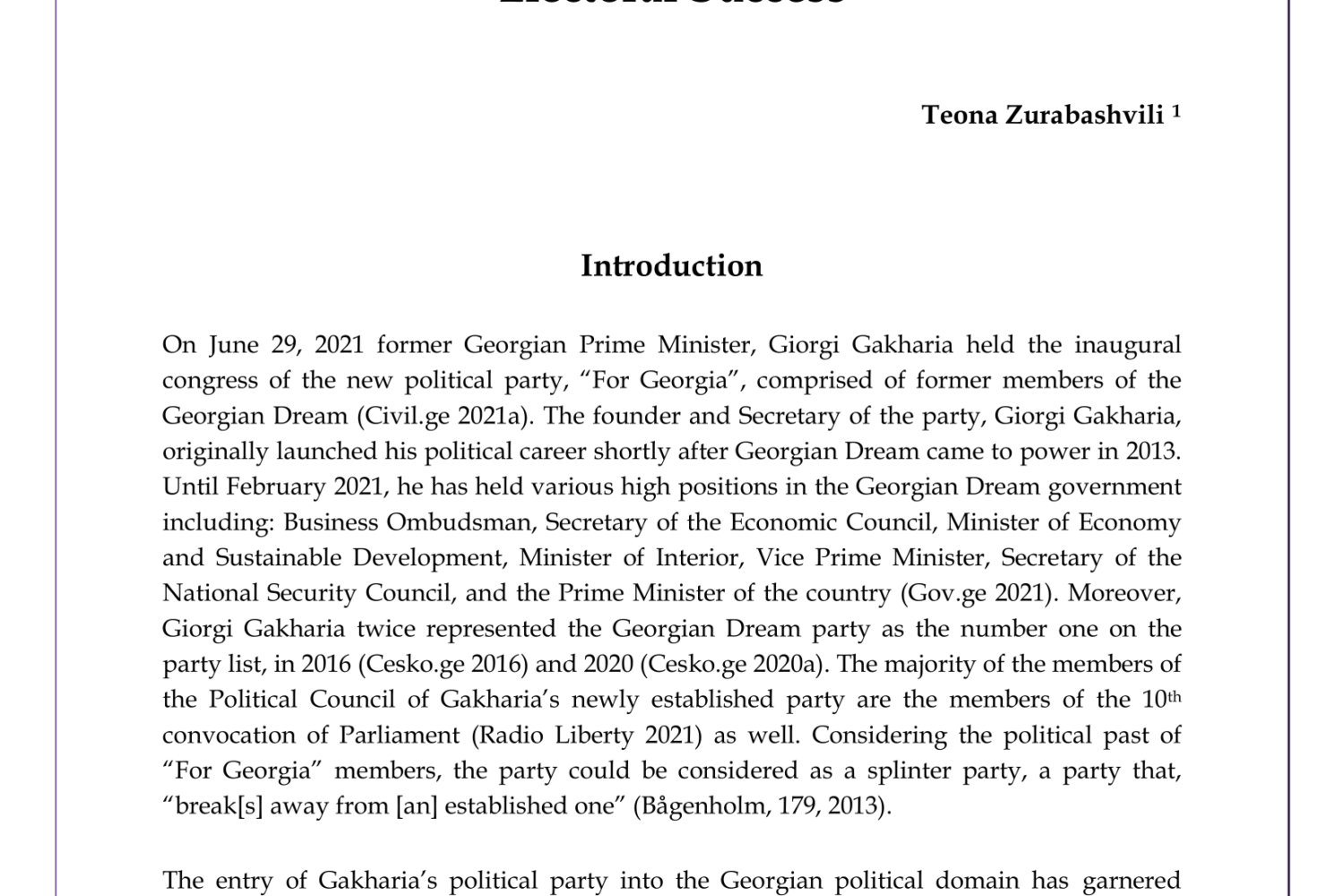
Tags:



